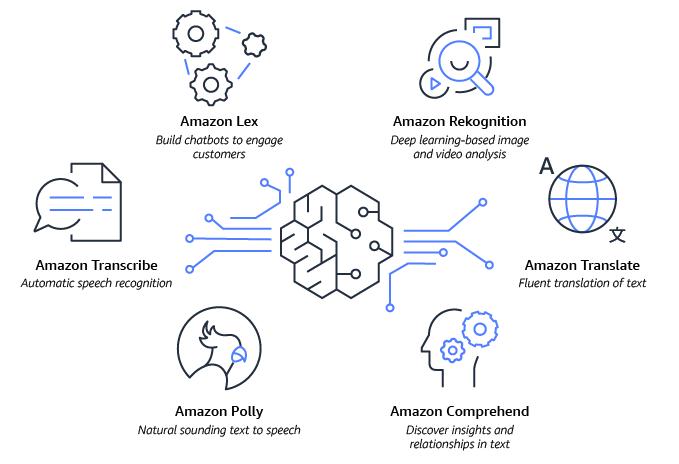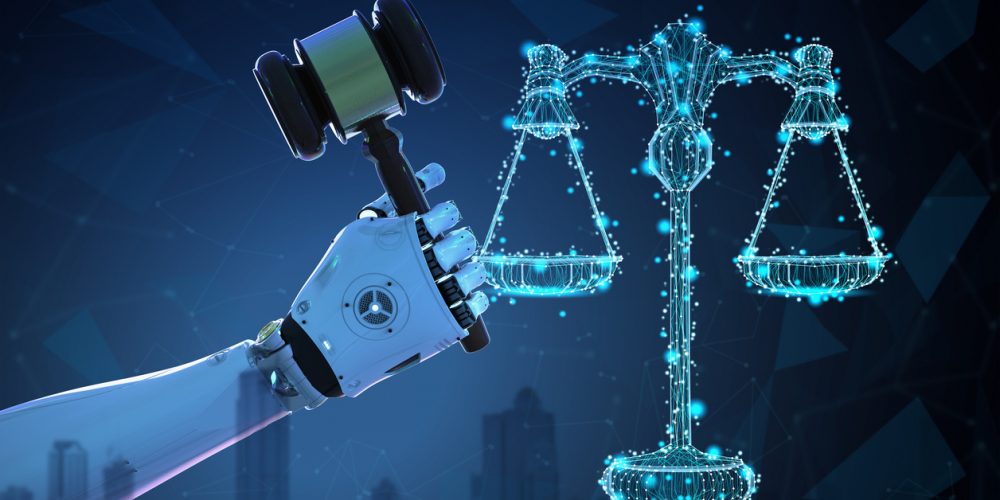
Know About The 7 Major Implementations of AI in E-Commerce in 2019
From the data published above by Statista, we can see the online retail sales of physical goods in the US amounted to 501 billion US dollar.
It is expected to cross $740 billion in 2013. The apparels and accessories e-commerce industry in the US is likely to generate over $145.8 billion US dollars in revenue by 2023.
The smart of Artificial Intelligence is working well to pave the way to e-commerce sites. The AI technologies used in most of the successful e-commerce companies are safe, easy to use, and, profitable.
So, in this article, we are going to talk about how e-commerce companies are making the proper use of AI technologies.
1. Chatbots:
Chatbots have been there for a long time. When It comes to starting with web development solution or mobile application development solutions for e-commerce companies, most of the site owners prefer to use chatbots.
The common problem with most of the chatbots is that they provide stock answers to the customers. Whenever users ask out of syllabus questions to chatbots, they don’t perform well and causing people to lose patience quickly.
This is exactly where AI comes as a great rescue.
Using deep learning and Natural Language Processing, AI Chatbots give thoughtful answers instead of providing the same generic type of responses.
The advantages AI-based Chatbots provide are-
- Conversations that are more human-like
- Insightful replies that meet the customer’s requirements
- Constant learning capability of Chatbots helpsthem get better and updated over time.
- It can analyze chats so that it can generate highly targeted offers for the users.
- Users love modern AI-based Chatbots way more than traditional Chatbots.
2. Personalized Shopping Experience:
Personalization allows you to do the real-time customization of the journey of your customers. It’s true that your website collects and stores tons of information about your users. Using the Google’s Analytics, you can know a lot of more additional details like locations of your users, their devices, the operating system they are using, browsers, how long they spend time on each site, and where they are coming from. You can get additional behavioral data about the clicks and actions of the users and information from your Customer Relationship Management tools. These data are called metadata. The AI allows you to use Metadata in the best manner to provides a highly personalized experience to your users.
Did you ever notice how Amazon, Alibaba, or eBay use their content on the product page? They follow a highly personalized approach on their product page.
Look at the image above and see how Amazon is providing personalized product recommendation to the users. One of the best parts of using Machine Learning is that it allows you to use every small data of hover or followed links to personalize the experience for the users on a deeper level.
You can practices personalization in different areas like messages, alerts, visuals, creating dynamic content, etc.
3. Automated Product Description:
AI has demonstrated it’s writing talent in automatic content creation.
You can use AI to create the product description.
We all know how vital role product descriptions play in the E-Commerce industry. Regardless of the product image, without having a proper product description, the potential customers would move on. But writing the descriptions of an extensive inventory of products manually is not an easy job as it involves a substantial amount of labor and cost.
AI makes the entire product description process a cakewalk by automating the writing process.
Does not only AI copy the product description from the manufacturer site, but it also digs the internet deeper to come up with the most recent and relevant product descriptions for your products. The description that AI provides contains the exact information that buyers are looking for.
4. Smart Product Recommendation Service Provided By AI:
AI has been doing well by making excellent product recommendations for the users.
One of the biggest e-commerce giants Amazon has already reported that upselling and cross-selling contribute to 35% of the total app revenues. No doubt, Amazon’s AI-powered real-time search engine is the vital factor behind the sky-rocketing success of Amazon.
Thanks to the well-established connection with Big Data, AI knows about the purchase history, search inquiries, and even changes in lifestyle, which can significantly influence the purchase decision of the customers.
The excellent benefits that it offers are-
1. Personalized recommendation always encourages customers to return to the site again to make a purchase yet.
2. Leads to higher retention rate, which leads to better sales and revenue.
3. An enhanced UX.
4. Storing the browsing habits of the users can be used for drafting a highly effective email marketing campaign.
5. Faster inventory turns over.
5. Smart Image Search:
You might have come across situations where you liked the products, but don’t know the name of the product or what it is? The AI has enabled the e-commerce businesses to implement the concept of image search. AI had made it sure that it understands the images so that your users can do an image-based search on your e-commerce website.
When it comes to using mobile app development services for e-commerce companies, businesses prefer to use AI at the time of developing the app itself. While using the app, users can point the camera toward the product and get all the details about the products. This process eliminates the requirement of image-based searches.
6. Enhanced Cybersecurity:
AI has also improved the overall cyber-security of the e-commerce industry. It can detect and prevent any attempt from breaching the security. Well, we all know that e-commerce sites deal with a lot of online transactions regularly, and this could be the potential roadmap to the online frauds and unethical activities like hacking. With the proper implementation of machine learning and Artificial Intelligence algorithm, e-commerce businesses can create a non-breakable layer of protection for their online transactions.
7. AI-Powered Customer Relationship Management:
These days most of the significant CRM vendors including Salesforce, SAP, Oracle, Microsoft, and Adobe and many others have invested on AI-Powered startups. For example, Salesforce offers Einstein, a smart tool that comes intending to make AI applications more accessible for the businesses. This tool can efficiently filter out the leads are more likely to convert, add data to CRM automatically, and provides personalized recommendations to the users to influence their buying decision positively. Einstein also can tell you what your customers are saying about you on different Social Media platforms.
So, now you might have gotten the clear picture of the ways how E-Commerce businesses are taking the leverage of Artificial Intelligence to enhance the UX, overall sales, and customer satisfaction. If you have been or planning to start running an e-commerce business, it’s high time you should focus on implementing AI for your business.






